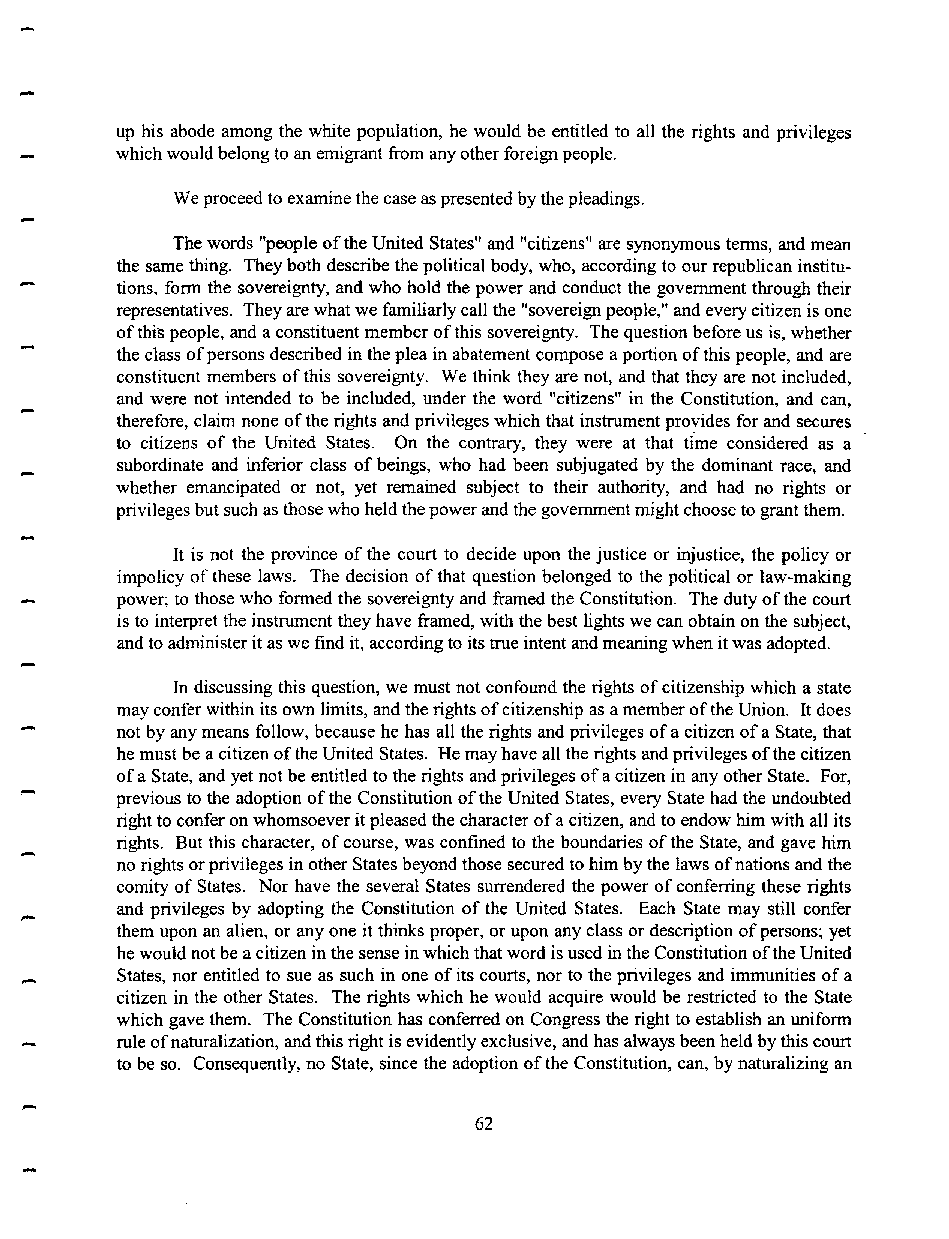|
up his abode among the white population, he would be entitled to all the rights and privileges
which would belong to an emigrant from any other foreign people.
We proceed to examine the case as presented by the pleadings.
The words "people of the United States" and "citizens" are synonymous terms, and mean
the same thing. They both describe the political body, who, according to our republican institu-
tions, form the sovereignty, and who hold the power and conduct the government through their
representatives. They are what we familiarly call the "sovereign people," and every citizen is one
of this people, and a constituent member of this sovereignty. The question before us is, whether
the class of persons described in the plea in abatement compose a portion of this people, and are
constituent members of this sovereignty. We think they are not, and that they are not included,
and were not intended to be included, under the word "citizens" in the Constitution, and can,
therefore, claim none of the rights and privileges which that instrument provides for and secures
to citizens of the United States. On the contrary, they were at that time considered as a
subordinate and inferior class of beings, who had been subjugated by the dominant race, and
whether emancipated or not, yet remained subject to their authority, and had no rights or
privileges but such as those who held the power and the government might choose to grant them.
It is not the province of the court to decide upon the justice or injustice, the policy or
impolicy of these laws. The decision of that question belonged to the political or law-making
power; to those who formed the sovereignty and framed the Constitution. The duty of the court
is to interpret the instrument they have framed, with the best lights we can obtain on the subject,
and to administer it as we find it, according to its true intent and meaning when it was adopted.
In discussing this question, we must not confound the rights of citizenship which a state
may confer within its own limits, and the rights of citizenship as a member of the Union. It does
not by any means follow, because he has all the rights and privileges of a citizen of a State, that
he must be a citizen of the United States. He may have all the rights and privileges of the citizen
of a State, and yet not be entitled to the rights and privileges of a citizen in any other State. For,
previous to the adoption of the Constitution of the United States, every State had the undoubted
right to confer on whomsoever it pleased the character of a citizen, and to endow him with all its
rights. But this character, of course, was confined to the boundaries of the State, and gave him
no rights or privileges in other States beyond those secured to him by the laws of nations and the
comity of States. Nor have the several States surrendered the power of conferring these rights
and privileges by adopting the Constitution of the United States. Each State may still confer
them upon an alien, or any one it thinks proper, or upon any class or description of persons; yet
he would not be a citizen in the sense in which that word is used in the Constitution of the United
States, nor entitled to sue as such in one of its courts, nor to the privileges and immunities of a
citizen in the other States. The rights which he would acquire would be restricted to the State
which gave them. The Constitution has conferred on Congress the right to establish an uniform
rule of naturalization, and this right is evidently exclusive, and has always been held by this court
to be so. Consequently, no State, since the adoption of the Constitution, can, by naturalizing an
62
�
|

